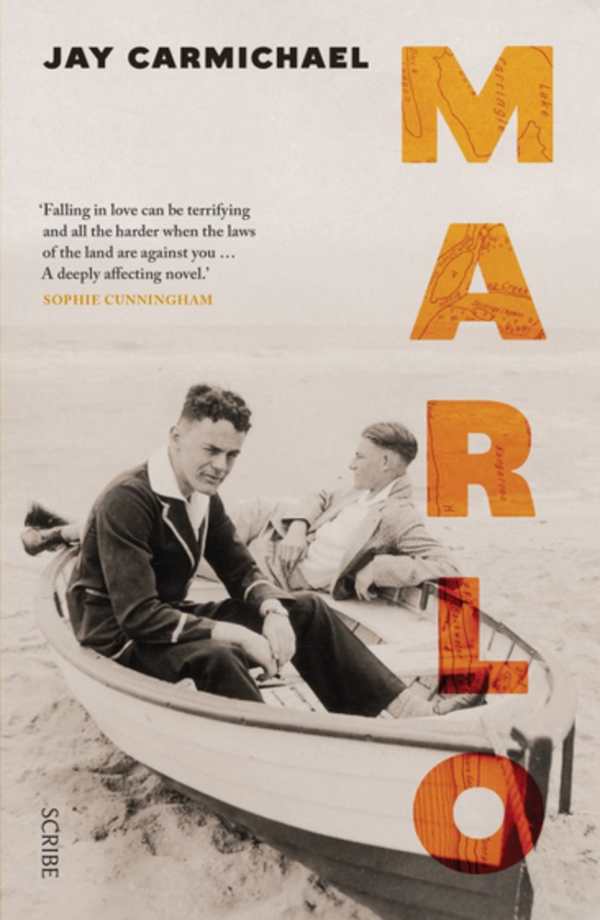Marlo
In Jay Carmichael’s novel Marlo, two gay men navigate their relationship in Melbourne, Australia, in the conservative 1950s.
Christopher has just moved to the big city, seeking a fresh start and reprieve from his small homophobic hometown, Marlo. He meets an old friend from school and moves in with him and his girlfriend while getting a job as a car mechanic. While Christopher searches for belonging and acceptance, he meets Morgan, an Aboriginal man, and feels an immediate connection to him. He offers to escort Morgan home. This instigates a secret relationship that moves through underground drag clubs and secret letters to a budding love. As the two men become closer, they decide how to grapple with their sexual relationship in a time and place when being gay was punishable by law.
The pacing of Marlo is slow so that the story can focus on character building and scene setting. Through rich language, Carmichael portrays sparkling drag clubs and dark back alleys in a way that feels at once enchanting and perilous.
Christopher is empathetic as he escapes the conservatism of his hometown and begins to embrace his sexual orientation. The relationship between Christopher and Morgan illuminates conversations about gender and race: as an Aboriginal and a gay man, Morgan lives an even more dangerous life, and this intersectionality is engaging.
Marlo is mainly set in the confines of Melbourne; there’s little exploration of the eponymous small town that Christopher came from, leaving some questions about Christopher’s past open. The inclusion of black-and-white photographs of drag queens and gay communities from the Australian archives are a charming touch and add to the aesthetic of the time.
Marlo is a character-driven novel about the harsh realities of being queer in Australia and what it meant to fight for love during a time when the world fought back.
Reviewed by
Allison Janicki
Disclosure: This article is not an endorsement, but a review. The publisher of this book provided free copies of the book to have their book reviewed by a professional reviewer. No fee was paid by the publisher for this review. Foreword Reviews only recommends books that we love. Foreword Magazine, Inc. is disclosing this in accordance with the Federal Trade Commission’s 16 CFR, Part 255.

